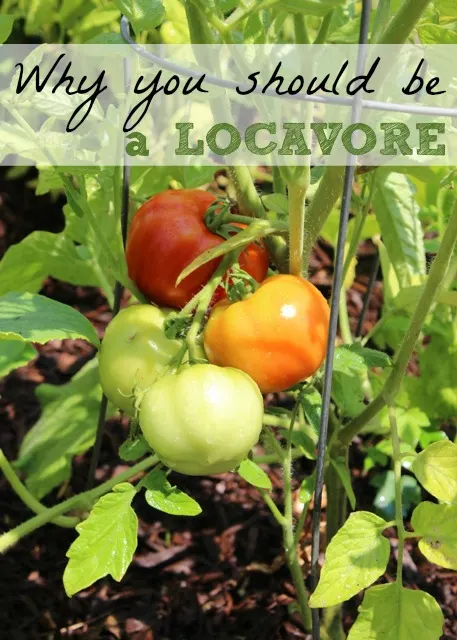
It all started with a book. And a newspaper article.
On a road trip, I grabbed Animal, Vegetable, Miracle by Barbara Kingsolver off the shelf of an independent bookstore. What an interesting read.
Our reading coincided with a local news article on a man who’d done a locavore stint in our state of Connecticut. It was a challenge because of our shorter growing season, but overall he did it! Again, an inspiring read.
I’d always suspected organic foods were better for you, but we weren’t putting a lot of effort into eating that way. After reading one family’s year-long journey of eating ONLY foods grown or produced within 100 miles of their home, my husband and I were inspired to scrutinize our eating habits.
Locavore: one who seeks locally grown and seasonally available ingredients and foodstuffs (Word of the Year in 2007).

You should be a locavore because:
Locally grown food is often fresher, retaining more nutrients than food that has sat on a truck for days.
Locally sourced food means you either grew it yourself and know what was in the soil, or have access to the farmer who grew/raised it and can ask about their farming practices.
While locally sourced food may not be certified organic, many small farms are “all but” organic – they can’t afford the government issued certifications, but are following the same farming practices.
Locally grown food can be less expensive if you take advantage of coops, farmer’s markets, CSAs, or grow your own!
Locally grown food keeps your money in your area, supporting small businesses.
Locally grown food expands your palate, as you seek and discover heirloom varieties and seasonal gems!
Growing your own food is delicious, and educational for your children!
I believe locavore and organic eating is better for our family. Yet I’m alarmed at how small farms are struggling or going out of business. They don’t have the advantage of federal subsidies, which go to huge agribusinesses that often don’t follow sustainable or organic farming practices.
Congress will soon vote on a new farm bill– the federal measure with the greatest impact on the food we eat. (Read more details on the bill and why you should care). My (and your) tax dollars go to highly profitable agribusinesses that don’t need more help. Or to people who don’t even live anywhere near a farm. How does this make sense? Why isn’t my lovely, local, organic farm getting any help?
The government does very little to help farmers grow organic fruits and vegetables. In fact, while they subsidize costs of toxin-laden fertilizers, they also levy heavy fees for organic certifications to indicate farmers did NOT use those chemicals! Why are organic farmers paying MORE?
Portions of the funding in this new farm bill should help small, local, organic farmers! Like the one who runs the farmstand at the end of his driveaway with a simple “Take what you need, leave what you can” sign? Or our CSA that involves members in the growing and harvesting processes?
Maybe you’re wondering why I’m so excitable about this issue. I give you this photo:

Because I’m raising two little boys whose bodies are developing brain cells, motor skills, and other important body functions. I don’t want to mess that process up by giving them toxin-laden foods.
Because our bodies only function as well as we eat.


Vickie COuturier
Sunday 28th of April 2013
I have already signed this pledge
Vickie COuturier
Sunday 28th of April 2013
I have already signed this pledge
Tammy S
Wednesday 24th of April 2013
Great post! I signed. Let's hope we can make a difference. :)
Tammy S
Wednesday 24th of April 2013
Great post! I signed. Let's hope we can make a difference. :)
Amanda Alvarado
Tuesday 23rd of April 2013
Im not sure if it took my signature! Is there anyway you can check it? I didn't get a Thank you page or anything - just the same "sign the petition" page that you fill out!